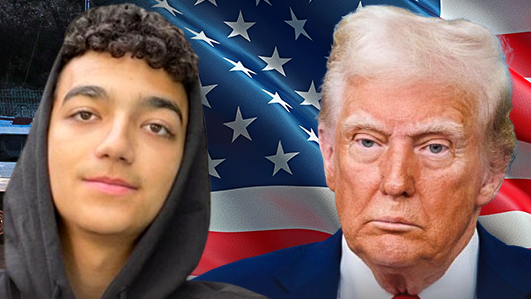This is what that new phase means:
1. The new war accelerators
In other words, the main coin in any negotiation with Hamas – territorial concessions – is off the table. Such an approach significantly minimizes Hamas' incentive to engage in a larger deal, thus leading to a near-deadlock reality, in which the sole realistic option is military. This does not necessarily indicate the war will last longer. Still, it implies that its continuation depends less on Hamas' willingness to negotiate and more on political, social and legal factors.
2. The day after dilemma
While officials mentioned that Israel will strive to retain territories that have been annexed since March to maintain a security zone, there's no clear vision of what the regional future will look like. A post-war plan is still nowhere to be seen. In the short run, it could affect the purpose and precision of military conduct. In the medium and long run, it may intensify the current geopolitical unease with Israel's interests. Such an outcome is undesirable for both Jerusalem and Washington.
Consequently, Trump's regional visit could result in detailing a vision to avoid such a fate. And while any future arrangement may have included regional partners such as the Saudis, the lack of Israeli initiative here may also come with a price tag of prioritizing non-Israeli interests. Such interests could impact the identity of the entities governing the Strip or the West Bank, the security arrangements in both areas and the ability to operate there. If so, Israel could soon face a dilemma: extending the Abraham Accords with potential sacrifices on the operational front or continuing the war with diluted legitimacy.
3. The hostages' fate
The hostages are the most sensitive topic in Israel today. The national healing process of the trauma of October 7 can not begin without their return home. The current military plan assumes their return is possible primarily through military pressure. This is a controversial position, to say the least. Most hostages have been released in deals, not in operations. The main reason is the challenge to rescue people who are either hidden in underground tunnels or heavily embedded in civilian populations, with clear instructions by their captors to kill them in case of a rescue attempt.
The IDF has made it clear that, while the two goals are intertwined, releasing the hostages precedes dismantling Hamas. However, Hamas' above-mentioned disincentive to negotiate could lead to problematic outcomes regarding the former. While the notion of victory has multiple interpretations, a reality of a defeated Hamas with severe consequences to the hostages isn't the most common one. The Israeli challenge here would be to eliminate Hamas, yet to avoid eternalizing the social trauma.
4. Humanitarian aid and legal shields
Since the beginning of the war, Israel has allowed more than 1.3 million tons of humanitarian aid into Gaza. Yet, troubling images of hunger and distress have come from the Strip. Why? Hamas denied the local population access to most of that aid for two main reasons: to ensure its survival and durability and maintain control over the local population by distorting the proportions between supply and demand.
As the main hearings in the case are scheduled for the beginning of 2026, Israel faces a substantial risk of being falsely convicted of committing genocide. Continuing the war will be highly challenging in such a scenario. Thus, the current humanitarian plan, which ought to ensure more aid reaches the Gazan population directly, bears military logic (with significant logistical challenges), but even more so, legal reasoning. The key question is whether initiating it more than 16 months after the war began will appease the court or be considered too late.
5. The draft law
 Gadi Ezra Photo: Avigail Uzi
Gadi Ezra Photo: Avigail UziConditioned mainly by religious parties for the coalition's survival, this legislation is at the core of a lively debate and viewed by many as an immoral exemption from service during times of need. If passed, it would place an even greater burden on those already serving and make it harder for Israel to achieve its goals. In this sense, the Israeli government won't have to lead a military maneuver only, but also a political one.
The current declared ground operation could be the ultimate one in Gaza. It has a justified goal of destroying Hamas, but it also bears significant military, geopolitical, social, legal and political implications and challenges. Their existence doesn't mean the operation won't happen, but they assure us it will be more complicated than it appears to be.


